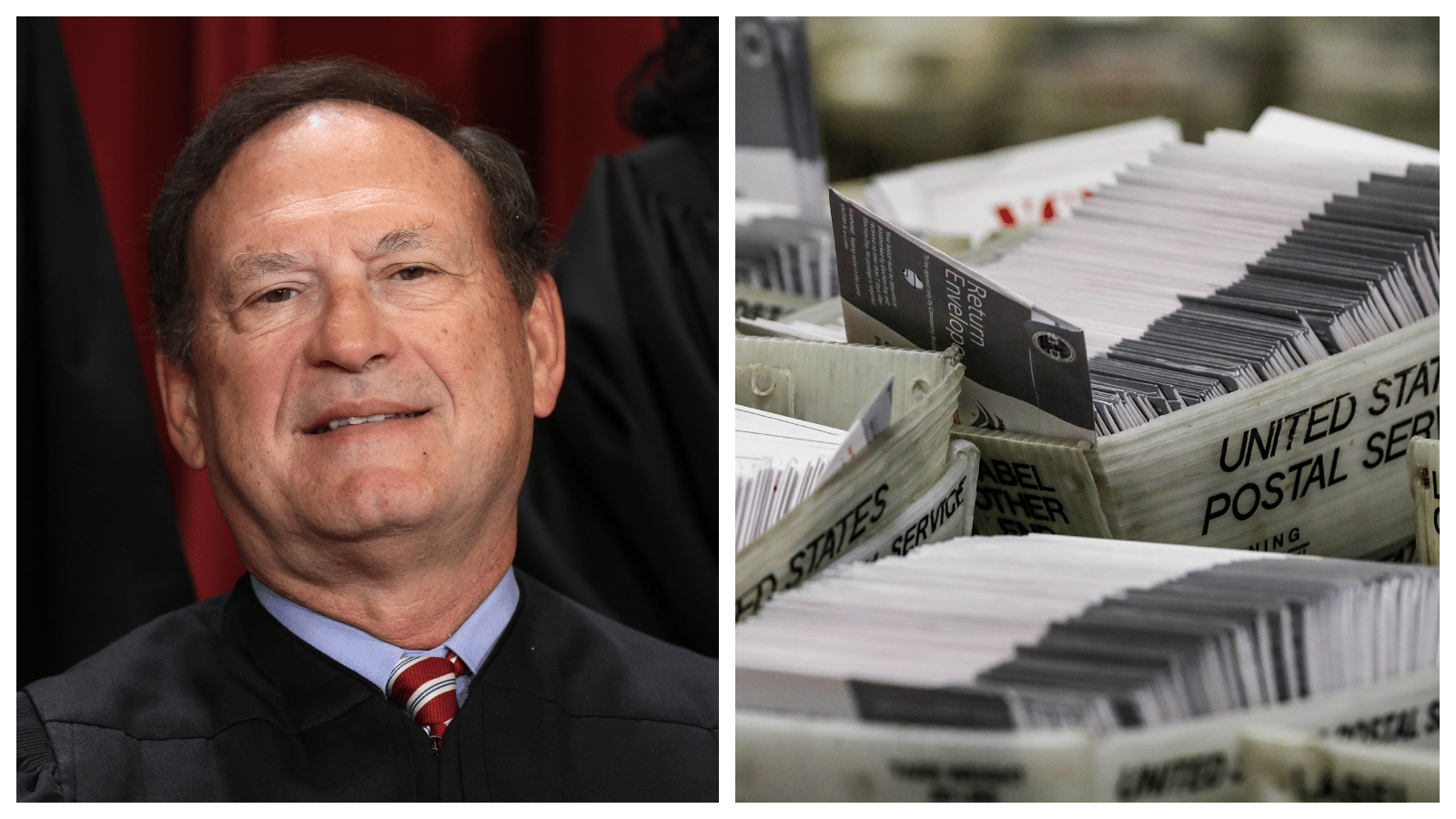OPINION: This article may contain commentary which reflects the author's opinion.
The U.S. Supreme Court has declined to hear a challenge to Texas’ voting rules, which allow seniors to automatically vote by mail but not younger people.
The court pointed out that some states, such as Indiana, Kentucky, Louisiana, Mississippi, South Carolina, and Tennessee, have similar regulations that allow elderly voters to request an absentee ballot for any reason, while younger voters can only do so in specific circumstances. Otherwise, they must vote in person, and many only after producing a valid ID.
The court’s choice not to entertain the appeal from three Texas voters mirrors its prior dismissal of a comparable challenge to Indiana’s voting laws in 2021. The high court declined to consider earlier iterations of the Texas lawsuit that were filed by the Texas Democratic Party amid the COVID-19 pandemic.
The challengers argued that the unequal treatment of voters amounts to age-based discrimination, which goes against the 26th Amendment. This amendment, ratified in 1971 to lower the voting age to 18, states that the right to vote “shall not be denied or abridged…on account of age.”
“Whatever voting rights a state grants to people aged 65 and over, it must also grant to people under 65,” the Texas voters told the Supreme Court in their unsuccessful appeal.
They asked the higher court to overturn a ruling by an appeals court that Texas’ voting regulations are constitutional, arguing that making it easier for some people to vote does not make it harder for others. Earlier, the 5th U.S. Circuit Court of Appeals in New Orleans said that the right to vote did not include the right to vote by mail when the 26th Amendment was made law.
Republicans have been picking up similar wins in other jurisdictions to shore up voter integrity before the 2024 election.
The U.S. 3rd Circuit Court of Appeals handed down a decision earlier this month that could significantly influence election outcomes in Pennsylvania, a key swing state, as well as other battleground states, marking a notable win for Republicans who have been advocating for voter integrity measures.
The court overturned a federal district court’s order and ruled in favor of the Republican National Committee (RNC) regarding signature verification for mail-in voting in the “crucial” state of Pennsylvania.
According to NPR, the case concerned whether mail-in ballots with an incorrect or no date under the voter’s signature should be counted.
Democrats argued that the Materiality Provision, as outlined in Section (a)(2)(B) of the Civil Rights Act of 1964, should apply, thereby asserting that the ballots should be counted.
The Materiality Provision prohibits denial of the right to vote because of an “error or omission” on paperwork “related to any application, registration, or other act requisite to voting” if the mistake is “not material in determining whether [an] individual is qualified” to vote.
The RNC responded by contending that enforcing the date requirement on ballots “does not impinge on the right to vote” because the Materiality Provision “only prohibits immaterial requirements affecting the qualification and registration of a voter,” not other, more specific requirements for casting a ballot, The Daily Wire reported.
All three of the appeals court judges were appointed by Democrats; two of the three agreed with Republicans, writing, in part:
States have separate bodies of rules for separate stages of the voting process. One stage, voter qualification, deals with who votes. To register and thus be authorized to vote, applicants must follow prescribed steps and meet certain requirements. It’s like obtaining a license to drive. Another stage deals with how ballots are cast by those previously authorized to vote, which is governed by a different set of rules. To cast a ballot that is valid and will be counted, all qualified voters must abide by certain requirements, just like those authorized to drive must obey the State’s traffic laws like everyone else.
The Materiality Provision is an important federal overlay on state election requirements during the “who” stage: voter qualification. It prohibits States from denying an applicant the right to vote based on an error or omission in paperwork involving his application if that mistake is immaterial in determining whether he is qualified to vote. That is, it is triggered when conduct or laws restrict who may vote. But it leaves it to the States to decide how qualified voters must cast a valid ballot. Pennsylvania has made one such rule—the date requirement—mandatory. The federal Materiality Provision, in our view, does not interfere.
